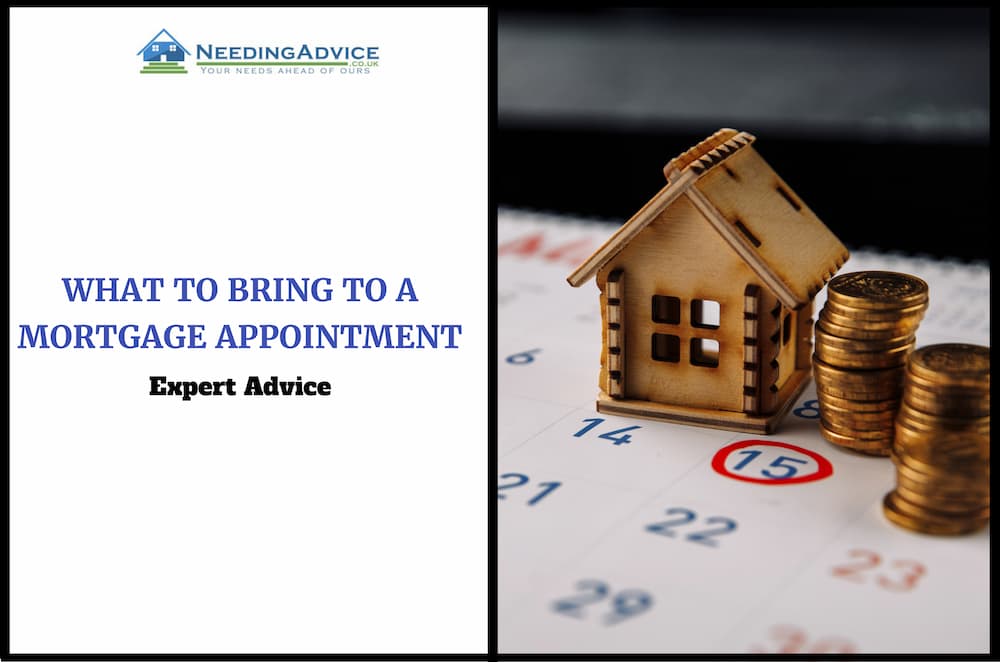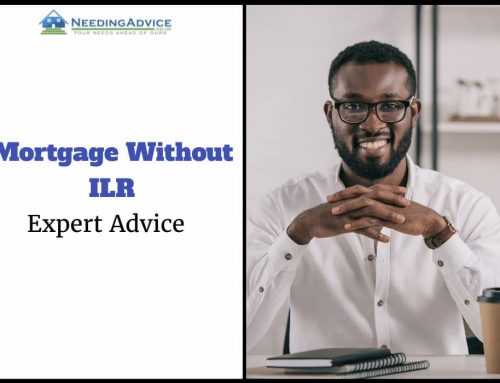Arranging a mortgage can be a daunting task, but with a bit of preparation, you can make the process smoother and more straightforward. One of the most important steps is to gather all the necessary documents for your mortgage appointment.
There’s a lot hanging on it. Finding a mortgage is never the simplest and most straightforward of matters. So, you want to instruct a mortgage adviser to help you. He or she is there to do just that; you want to make your first appointment count.
To set off on the right foot and to do all in your power to make the business of getting a mortgage as smooth and painless as possible, what do you take to see a mortgage adviser?
Helpfully, online listings site Rightmove suggests the answer:
- photo ID;
- proof of addressEvidence of a borrower's current address, such as a utility ...;
- your last three payslips or pay advice;
- your latest form P60, and
- the last three months’ worth of bank statementsA record of a borrower's financial transactions often requir....
The photo ID, of course, is needed to confirm your identity and may take the form of your passport, driving licence or any other official document bearing your name and photograph. Providing your proof of identity is a required anti-money-laundering measure which also prevents criminals from illegally obtaining financial products and services.
Your proof of address is also an important part of your identification when any potential lender uses it when requesting your credit history from the credit reference agencies. The latter also uses that address to check whether you are inscribed on your local electoral roll – an important measure in recording your credit rating.
The payslips, P60, and bank statements will all help to provide any mortgage broker with proof of your current income – and earnings in the immediate past.
If you are self-employed, you may need to be prepared for the fact that some lenders will require up to three years’ worth of audited accounts – or confirmation of your earnings for the same period as provided by a form SA302 (provided by HM Revenue & Customs as proof of your declared earnings and tax liability for the years in question).
It is worth emphasising that there is little point in exaggerating your income in the misguided belief that you are increasing your chances of a better mortgage offer. If a mortgage adviser subsequently becomes suspicious of the earnings information – or any other information, for that matter – there are established protocols agreed between lenders and HM Revenue & Customs to cross-check and validate the details you gave.
You get to ask the questions, too.
Getting off on that first foot with your mortgage adviser is the beginning of a two-way process. Just as the adviser is likely to ask you a number of questions and to provide some documentary evidence, so it is also your opportunity to ask whatever you want to know about getting your mortgage.
What questions do I need to ask a mortgage broker on the first appointment?
-
Here are some questions you should ask your mortgage broker on your first appointment:
General Questions
-
Are you authorised by the Financial Conduct Authority (FCA)? This ensures that the broker is regulated and follows industry standards.
-
Are you a whole-of-market broker? This means they have access to a wide range of mortgage products from different lenders, giving you more options to choose from.
-
How do you get paid? Mortgage brokers can earn commissions from lenders when you take out a mortgage. Understanding their compensation structure will help you determine if they are acting in your best interests.
Affordability Questions
-
How much can I afford to borrow? This will depend on your income, expenses, credit score, and other factors. The broker can assess your financial situation and provide an estimate of your borrowing capacity.
-
What is the minimum deposit requirement for the type of property I’m looking to buy? Different types of mortgages have varying deposit requirements. The broker can advise you on the specific requirements for your situation.
-
What will my monthly mortgage repayments be? The broker can provide you with an estimate of your monthly payments based on the loan amount, interest rate, and mortgage term.
-
How will my repayments be affected by interest rate changes? If you choose a variable-rate mortgage, your payments will fluctuate with changes in the interest rate. The broker can explain the potential impact of interest rate changes on your repayments.
Mortgage Product Questions
-
What type of mortgage is best for me? There are different types of mortgages available, such as fixed-rate, variable-rate, tracker, and interest-only mortgages. The broker can help you determine the most suitable option for your circumstances and risk tolerance.
-
Should I fix my mortgage rate? Fixing your interest rate for a certain period can provide stability and protection against rising interest rates, but it may limit your flexibility and could result in higher payments if interest rates fall. Discuss the pros and cons of fixing your rate with your broker.
-
What are the early repayment charges (ERCs) for different mortgages? ERCs are fees you may be charged if you repay your mortgage early. The broker can explain the ERC terms for different mortgage products.
Application Process Questions
-
What documents do I need to provide for my mortgage application? The specific documents required may vary depending on your circumstances, but generally, you’ll need to provide proof of identity, income, and assets.
-
How long will it take to process my mortgage application? The processing time can vary depending on the complexity of your application and the lender’s procedures. The broker can provide an estimated timeframe.
-
What will happen if my mortgage application is rejected? If your application is denied, the broker can review the reasons and suggest ways to improve your chances of approval in the future.
-
What happens if I need to make changes to my mortgage application? If your circumstances change, such as a change in income or employment, it’s important to inform the broker immediately. They can assess the impact of these changes and advise you on the necessary steps.
Additional Questions
-
Can you help me with other aspects of the house-buying process, such as finding a property or connecting with a solicitor? Many brokers offer additional services to assist you with the entire home-buying process.
-
What happens if I want to overpay on my mortgage? Overpaying can help you reduce your mortgage term and save money on interest. The broker can explain the overpayment options and potential benefits.
-
What happens if I sell my property before the end of the mortgage term? Selling your property before the end of your mortgage term may result in early repayment charges or other penalties. The broker can advise you on the specific terms of your mortgage.
-
Can you help me understand the impact of different mortgage options on my long-term financial goals? A good broker will take the time to understand your financial goals and help you choose a mortgage that aligns with your long-term plans.
Remember, your mortgage broker is your guide through the mortgage process. Don’t hesitate to ask questions and seek clarification whenever needed.
-
Further reading: What documents do I need to apply for a mortgage?







Leave A Comment